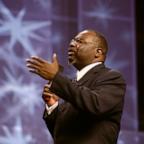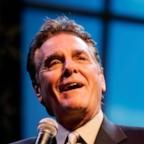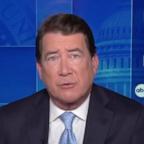How tonight’s debate participants qualified
Recent initial primary debates have involved a lot of candidates — 17 for Republicans in 2016 and 20 for Democrats in 2020 — across two debates, either on the same night or across two evenings. To lead off the 2024 cycle, Republicans will have a more intimate affair, with eight contenders taking the stage tonight. That number could’ve been slightly larger, however, as nine GOP candidates met the RNC’s debate qualification criteria for polls and donors. But Trump isn’t participating, having refused to sign a mandated loyalty pledge promising to support the eventual GOP nominee in the general election, so there will be only eight lecterns on stage.
Eligible participants either earned 1 percent support in three national polls or at least 1 percent in two national polls and two polls from the first four states voting in the GOP primary (each coming from separate states), based on surveys that meet certain criteria for inclusion. They also attracted donations from at least 40,000 unique contributors, with at least 200 donors from 20 or more states and/or territories.
Meeting these criteria was straightforward for most of the candidates, as by the end of July, seven (including Trump) had enough qualifying polls and donors to make the stage. Lagging behind, Pence became the eighth eligible contender when his campaign announced on Aug. 7 that he brought in enough unique donors. Hutchinson had enough surveys in hand by late July, but he only announced on Sunday that he had reached the 40,000 donor mark, coming in just under the deadline.
But there was last-minute drama, as businessman Perry Johnson and Miami Mayor Francis Suarez each said they had qualified, only for the RNC to leave them off its final list of participants. Johnson in particular may have a bone to pick, as he claimed that the RNC initially indicated that he had enough polls, and our analysis suggests he did, too. Larry Elder, who along with Johnson hasn’t met FiveThirtyEight’s criteria for being considered a major candidate, also claimed he had made it,> but one of the polls he cited did not have a large enough sample size to meet the RNC’s criteria. Johnson and Elder announced yesterday that they were suing the RNC. Suarez, Johnson, Elder and Hurd all had enough donors to make the stage but, controversially or not, lacked the polls in the end.
-Analysis by Geoffrey Skelley of FiveThirtyEight






